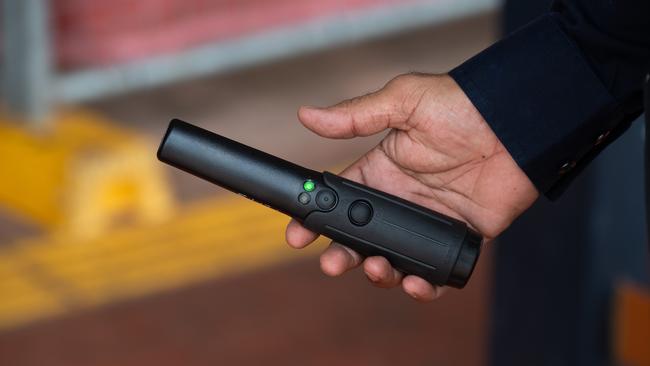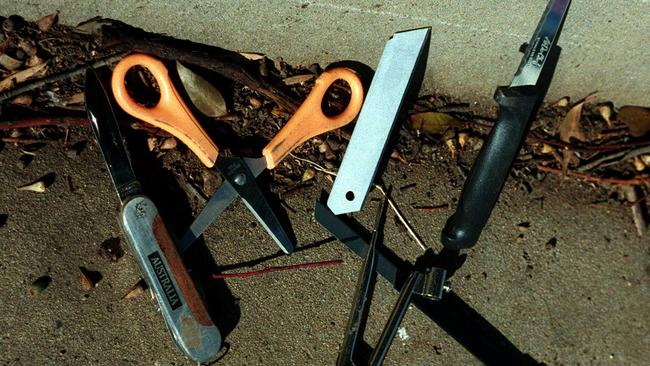‘No evidence’ wanding school students will reduce knife crime, advocates say
The NT government’s plan to give police greater stop and search powers, including the authority to enter schools to wand children for knives, is ‘a worrying sign of policy without evidence’, advocates warn.

News
Don't miss out on the headlines from News. Followed categories will be added to My News.
The NT government’s plan to give police greater stop and search powers, including the authority to enter schools to wand children for knives, is “a worrying sign of policy without evidence”, advocates warn.
Expanded wanding powers will be introduced next week as part of Declan’s Law, one of several law and order reforms expected to pass on urgency including tougher bail,
lowering the age of criminal responsibility, and making posting and boasting an offence.

Justice Reform Initiative criticised the move to allow police to wand in more public places, including schools and public transport.
“There is no evidence from jurisdictions where wanding laws have been trialled to show that this deters knife carrying or reduces incidences of knife crime,” executive director Mindy Sotiri said.
“Over-policing of children – especially in places like schools that are supposed to be safe and focused on education – will likely have a negative effect, particularly for communities who are already over-policed.”
Dr Sotiri said early contact with police could also lead to increased hostility between police and young Territorians.
“We need to put our energy into evidence-based policy and do the hard work on the deeper issues relating to disadvantage, mental health, alcohol and other drug use and disengagement.”
Greens MLA Kat Kat McNamara said the reforms threatened to turn schools into “airport security check-outs”.
“Children should feel they can go to class without being policed,” she said.
“Can the Chief Minister rule out police going into primary schools to wand our children in year five and year six?”
Australian Education Union NT said it shared the government’s concern with keeping students, teachers and principals safe.

“But if wanding is going to happen every day a student goes to school, I don’t think that would be making them feel safe,” president Michelle Ayres said.
“We want to know the role teachers and principals will be expected to play – they need to be seen as educators, not as law enforcement, and we can’t afford to add to their workloads.”
Ms Ayres said the union was also concerned about the legal rights of students and staff, calling for principals to be protected from legal challenges if a student’s usual privacy rights were overruled by the wanding process.

Chief Minister Lia Finocchiaro said wanding in schools would likely be at the discretion of principals.
“By expanding wanding into schools, we meet a really important concern of teachers and parents who are seeing increases in sharp edged weapons being brought into our school community,” she said.
“This is going to be done in development with school principals, and it’s very likely that school principals will have the right to accept or reject an opportunity for wanding in their school based on the evidence of the school at the time.
“This is about working collaboratively with the education system and families, and it’s about giving police more options.”
More Coverage
Originally published as ‘No evidence’ wanding school students will reduce knife crime, advocates say





